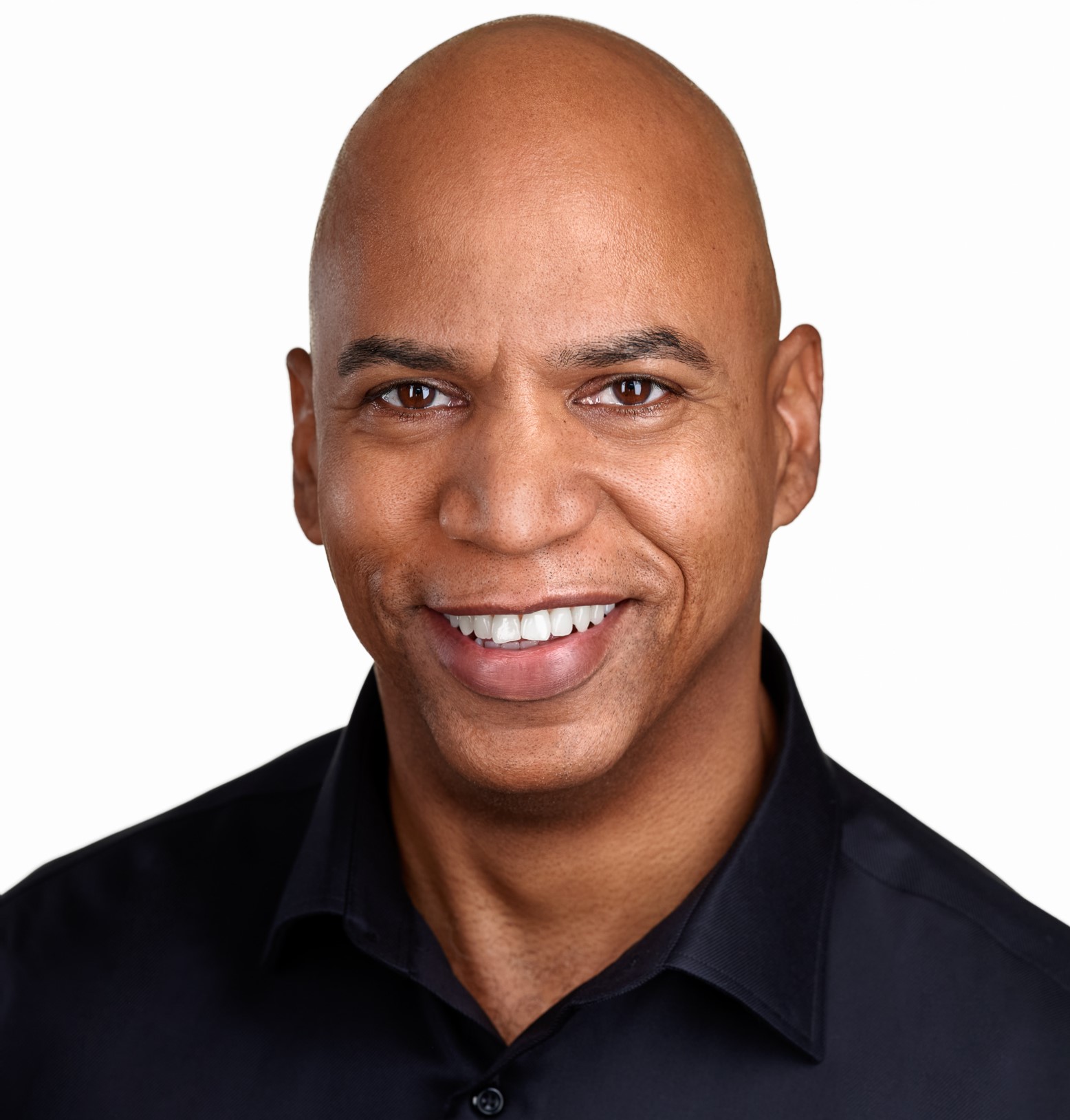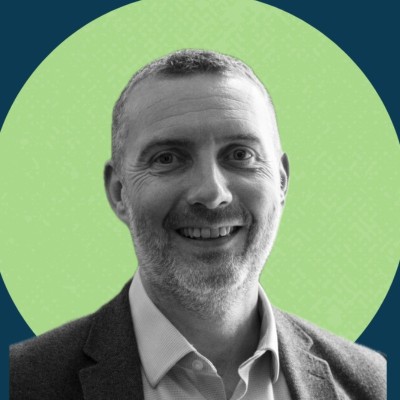David L. Bartholomew is a servant leader, leadership coach, and consultant passionate about empowering people to unlock their potential and excel. As Founder and CEO of PLS Transformation, he helps organizations bridge the gap between aspirations and results through leadership and culture transformation. In life and business, he serves as an insight and accountability partner, helping people find their voice, realize their value, and achieve meaningful goals. He is committed to helping leaders and organizations thrive by unleashing the power of people.
Could you elaborate on the nature of your business, highlighting its purpose and the ways it benefits people?
PLS is a Leadership & Culture Transformation Firm. We partner with mid-market organizations to transform employee engagement and change adoption, enabling strategy execution and transformation goal achievement that drive growth and operational efficiency.
In today’s fast-paced and unpredictable business environment, change is inevitable—whether it’s cutting costs, improving performance, or undergoing major transformations often within compressed timelines. The focus tends to be on financial outcomes such as increasing shareholder value or staying afloat, and people can sometimes be treated as commodities. At PLS we prioritize people in the transformation process because we believe that successful change begins and ends with empowered, not exploited, people. Our motto ‘Powering Change Through People’ reflects this commitment.
Businesses thrive when their people thrive. With nearly three decades of experience in leadership and behavioral transformation, we understand that not all leaders fully recognize or appreciate the critical role people play in driving success. For those who do, we help them achieve their goals by empowering leaders, aligning cultures, and engaging teams to unlock their full potential and deliver extraordinary results.
What inspired you to start your journey as a coach and entrepreneur? Were there any specific events, challenges, or people that motivated you to take this path?
While my path was not always clear, it was always intentional and can be aptly described by the philosopher Goethe: “Before you can do something, you must first be something.” Growing up in New Orleans, LA, I came from humble beginnings where my parents worked tirelessly—not only to provide for us but to shield us from the downfalls of the neighborhood environment. My mother, a social worker, was the first to expose me to the concept of empowerment, setting me on a journey that I continue to this day.
She introduced me to my most significant mentor, the late Dr. Morris F.X. Jeff Jr., who taught me a powerful lesson: empowerment is not something you give to people, as is often implied. Instead, it’s about teaching and helping them remove the barriers that stand in their way, preventing them from manifesting their own inherent power. This concept transformed my understanding of leadership and behavior, and it also laid the foundation for my ability to self-reflect.
My father, a city transit driver, also played a profound role in shaping my approach to leadership. He taught me to treat everyone the same, no matter where they are on the totem pole of life—whether they’re the janitor or the CEO—and regardless of where they come from or how they look. He instilled in me the principle of evaluating people based on how they treat me and others. Many people say those words, but I live them—at home and at work.
When I took these values into the professional world, my first leadership role involved providing outreach to at-risk pregnant teens and delivering leadership development training to teen fathers over thirty years ago. For many of them, this work was a matter of life and death, and I took it seriously. From my first day on the job, I knew my life’s calling was to help people find their voice and strength. I felt it deep inside, but I also understood that this path required personal growth. I wanted to “be something” so I could “do something.”
As my career progressed, I learned that strong leaders and healthy cultures are not as common as they should be. Most people in leadership roles are not taught how to lead. Many excelled as individual contributors but struggled when tasked with the growth, performance, or well-being of others. Poor leaders create poor cultures, and I wanted to change that. My work began with developing leaders at the individual level, then expanded to teams, and now focuses on entire organizations. My journey continues.
Looking back at the beginning of your career, what were the major challenges you faced when establishing yourself as a leader/coach? How did you overcome those obstacles?
In the beginning of my career, I struggled to gain my footing as I tried to figure out how to have an impact on the organizations where I worked and the people we served. I often encountered “gatekeepers”—those individuals primarily concerned with maintaining the status quo, often to protect their power and position, rather than advancing the mission of the organization. I found this especially frustrating since I was in the nonprofit sector where we were supposed to be making a difference. I learned that organizational systems weren’t very sophisticated and there were very few leadership positions that people held onto for years—and many were founders.
Because I was driven to improve and challenge inefficiencies, I frequently violated Robert Greene’s first law of power: “Never outshine the master.” I repeatedly found myself butting heads with Executive Directors, leaving me disillusioned. Over time, I realized that my frustration was ironic—both the gatekeepers and I were contributing to the very problem I was trying to solve. They often ruled through force and control, driven by insecurity in their roles, while I was intellectually prepared to lead but lacked the emotional maturity to do so effectively.
This realization was pivotal. I began to develop a deeper awareness of myself and others. I recognized that leadership is not just about intellect but also about emotional intelligence, influence, and timing. My natural intuition became a cornerstone of my growth as a leader and coach. I learned to create change from within organizations by using the tools of empowerment instead of force. As I furthered my career, I learned that gatekeepers are everywhere and that skills of empathy and influence are critical to leadership impact.
In hindsight, I am grateful for the gatekeepers. They taught me the art of influence and the importance of self-awareness, both of which have become hallmarks of my leadership and coaching approach. Those early challenges shaped my ability to drive meaningful change by understanding and navigating the dynamics of power, control, and human behavior.
Would you like to share any remarkable achievement?
My greatest achievement is that I succeeded in becoming who I am today. One of my favorite quotes, “Go not where the path may lead. Go where there is no path and leave a trail,” perfectly captures my journey—a difficult and often lonely road from the 9th Ward of New Orleans to becoming a global leadership consultant and executive coach.
My early exposure was limited, and my professional opportunities were confined to nonprofit, community-based organizations with few opportunities. While I was passionate about my work and cared deeply about our clients, I barely made enough to meet my own basic needs. I wanted more in life than struggle, but I didn’t know anyone in business, with wealth or resources, or who was doing anything even remotely close to what I envisioned for myself.
When I shared my aspirations with others, I was sometimes criticized for “turning my back on the community.” Eventually, I stopped telling people and started working in silence. It was a long, hard, and sometimes dark road, but when many would have given up, I dug my heels in deeper and fought against the current. I learned to create my own opportunities.
Not only did I refuse to follow the roads that my circumstances laid out for me, but I also blazed a new trail. Along the way, I’ve helped others with limited opportunities similar to myself create new lives and careers that they never imagined possible, changing the generational fortunes of their families—just as I have done for mine.
I walked the talk, and I am proud of myself for it.
Women are a growing force in the workplaces worldwide, standing shoulder to shoulder with their male counterparts. What are your thoughts about women leadership today?
I am deeply supportive of women in leadership and bring a unique perspective shaped by my years as a licensed psychotherapist and executive coach. Over 80% of my clientele were women executives or senior leaders, and through their stories, I gained a profound understanding of the challenges they face. Many struggled to break through the glass ceiling, with some battling imposter syndrome while others embraced their success with pride.
Yet, the toughest challenges for many weren’t just at work but at home, where traditional expectations often clashed with their ambitions. I’ve seen women navigate difficult dynamics with partners who preferred they stay in stereotypical family roles or lower-level jobs, even at the cost of household income. My role has always been about empowerment, not judgment. When a woman shared her aspirations, I helped her confront the realities of her situation with honesty, knowing that growth sometimes requires making difficult choices. In many cases, women found the support they needed, but not always.
I recall coaching a frontline supervisor in a U.S. manufacturing facility who hesitated to accept a promotion because it would mean earning more than her husband. After working through her fears, she had a conversation with him, and he became her biggest cheerleader. On another occasion, I facilitated an executive leadership workshop in Canada with a team of male engineers and one female engineer. At the end of the session, one of the men turned to her and said, “Make sure you capture all the notes.” I could see her frustration, but she stayed silent. I stepped in and asked, “Are there any secretaries in the room?” She responded firmly, “No, there are not!” Moments like these highlight the resilience and strength women leaders bring to the table, even when faced with outdated attitudes.
Women in leadership are navigating complex and deeply entrenched barriers, but they are also breaking them down every day. My perspective is rooted in the belief that empowering women to lead authentically—at work and at home—is not just about fairness but about unlocking untapped potential that drives innovation and progress.
What message / advice would you have for future women leaders and aspiring entrepreneurs?
Be your authentic self without hesitation or overcompensation. Authenticity is your greatest strength, and staying true to your values will set you apart as a leader. If you’re not where you believe you deserve to be, take an honest look at yourself and your environment. Ask yourself: Is there something I can do differently, or are there legitimate barriers standing in my way? This self-awareness will help you navigate challenges with clarity and purpose.
Remember, leadership requires specific knowledge, skills, and abilities (KSAs) that transcend gender, race, or ethnicity. However, depending on the organizational culture or biases you may encounter, you might need to develop additional skills or strategies to thrive in that environment. While this isn’t always the case, being prepared to adapt and excel will strengthen your resilience and effectiveness as a leader.
Above all, know that your voice matters. Leadership is not about fitting into a mold—it’s about breaking barriers, inspiring others, and creating positive change. Stay confident, stay prepared, and never stop striving for the impact you want to make.
Get in touch:
Website: www.plstransformation.com
Personal LinkedIn: https://www.linkedin.com/in/davidlbartholomew/










